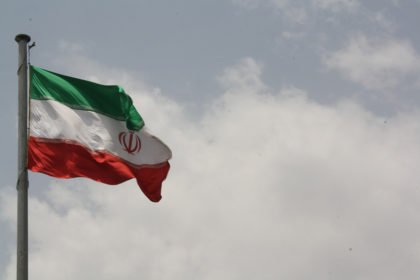A draft of Iran’s state-backed cryptocurrency project is ready, reveals the country’s National Cyberspace Center.
Over the past few months, the crypto community has been actively discussing the initiatives of some nations’ financial institutions aimed at using cryptocurrencies as a tool to strengthen their economy and ensure stability of their financial system.
As it has been already reported by CoinSpeaker, Iran was actively working on developing the country’s own digital currency as a way to overcome new economic sanctions introduced by U.S. President Donald Trump.
It’s worth mentioning that another very bright example of using cryptos as a solution for economic challenges is Venezuela. The country’s authorities strongly believe that their oil-backed “petro” cryptocurrency will help Venezuela survive in the context of U.S. sanctions and stop hyper-inflation that has been destroying the country’s economy.
But while Venezuela has already launched its “petro” digital asset, earlier this month Iran has only announced its plans to develop its cryptocurrency. Nevertheless, now Iran’s National Cyberspace Center has revealed that the draft of the state-backed cryptocurrency is ready.
As it has become known, the work on the development of the cryptocurrency was organized in strict compliance with the directions of President Hassan Rouhani.
The deputy director in charge of drafting regulations for Iran’s Supreme Cyberspace Council, Saeed Mahdiyoun, told the journalists that launching of a national cryptocurrency is actively supported and realized by Iran’s cyberspace authority.
According to Mahdiyoun, in the nearest future existing uncertainties surrounding the volatile cryptocurrencies will be removed as the Central Bank of Iran is expected to introduce its official position on the issue at the end of September.
At the current moment, financial institutions in Iran have no permission to provide banking services to crypto-related businesses or individuals, who want to carry out any transactions with digital currencies. Partially, experts explain it by the government’s concerns that money laundering activities may be related to cryptocurrencies, as revealed late last year.
Nevertheless, the official government’s stance towards cryptocurrencies has recently changed. As we have already mentioned, its state-backed digital currency is aimed to help the nation to overcome the consequences of the renewed U.S. sanctions imposed by President Trump who warned that at “anyone doing business with Iran will NOT be doing business with the United States.”
So, due to the restrictive nature of sanctions imposed by Trump, Iran has found itself excluded from trading and business relations with the majority of the world’s countries. It is obvious that such circumstances have serious negative impact on the country’s economy. That’s why now a national cryptocurrency is viewed as a tool that will facilitate the transfer of money to anywhere in the world.
At the same time, the number of reports about Iranian crypto ransomware is growing as well as the further threat of it. As it has been revealed by international consulting firm Accenture, the ransomware “could have been created by government-backed actors or Iranian criminals”.
next